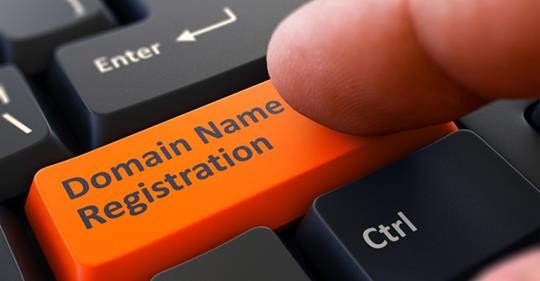
Domain registration can be quite complex, especially for beginners. The function of a domain is to describe the digital address of a website. Before accessing the site, users must first access the domain. This article will share some essential tips for registering a domain.
Importance of Domain Name
One of the main elements of a domain is its name. You have control over your domain once it’s registered. The domain you own can be used to manage your website. Domain ownership doesn’t last forever, and time constraints mean you need to maintain domain ownership.
The choice of domain name is a crucial aspect that significantly influences the website’s flow. The functions of a domain name can be quite diverse ranging from SEO interests, user trust, and branding. Because it will become a digital identity, the choice of name for the domain must be full of consideration.
It’s important to choose a “strong” domain name to make it more recognizable. At the same time, the name also needs to be professional to convey high credibility. Another important point is the relevance of the domain name to SEO.
For business people, it is increasingly important to choose a domain name that has keywords in it. Domains are not always paid, some are free. But people will trust professional domains more than free ones. Once you have a domain, you can use it for branding, managing content, and other functions.
Ultimate Tips for Domain Registration

So, do you want to register a domain for your website? There are some important points you should know beforehand. Check out the tips below to enhance your domain registration:
1. Learn About TLD
What is a TLD? The top-level domain is the suffix of a domain. You might be familiar with .com, which is one of the TLDs. Other types of domain endings include .info, .gov, org, .net, and more.
The most recognizable, memorable, and credible TLD is .com. But if you’re managing an organization
2. Identify the Best Name
The best domain name has quite a few criteria. If you want a different impression than usual or to stand out, choose a name that is memorable but not too odd. Keep it short to be memorable but still smooth and relevant.
Relevance is a crucial factor in selecting a domain name. Tailoring the name to the vision of the business/website can increase credibility. And what about hyphens and numbers?
When creating names for domains, hyphens, and numbers are allowed. However, one issue to consider is whether or not the name is difficult to pronounce and remember.
3. Don’t Register an Existing Domain Name
It is important to check whether the domain name is still available or not before registering it. You will need to modify or replace the domain if the name has been registered before. So, how to check? Some tools on the internet provide easy domain-checking services.
Another tip is social media research. Avoid names that already exist identically as users on various social media platforms. Why? You can find it easier for branding especially for cross-platforms if the related name does not exist on social media.
4. Searching Domain History
You also need to trace the ownership and usage of the domain from the first time it was registered. Without this, you can’t know much about the domain’s owner, usage history, content, reputation, and so on.
You need to avoid domains that were previously used for illegal things (pornography, gambling, etc.) or are notorious for penalties. If you use domains like these, your site may not be reliable in the long run. Some online tools provide domain history tracking such as displaying website content.
5. Choose the Best Domain Registrar
Not every domain registrar is one you can rely on. Some factors to consider include customer support, web hosting services, and competitive pricing. You can rely on websites like Quape.com because they provide a full range of services including domain registration, web hosting, domain transfer, and other services.
6. Psychological Approach
In terms of psychology, a better domain is more familiar or memorable. Choose a name that is easy to pronounce, phonetic-friendly, and short. Deciding on a domain also depends on whether your target market is local or global. If it’s local, it’s better to avoid foreign words especially those that are difficult to spell.
7. Learn What Often Goes Wrong
When deciding on a domain name, there are some common mistakes that you should anticipate. Make sure to prepare everything in advance including your brand’s readiness to be exposed. You have to know where your business or brand is heading because it can determine the domain registration.
The relevance of the domain name to the business vision is very important. If the domain name is irrelevant, it can trigger unprofessionalism and more people will find it hard to trust. Above all, keep it simple yet powerful.
Domain names should not be too long because you want to better explain your business. So how many characters are ideal for a domain name? You can create a domain with 6-14 characters. Another common mistake is referring to the trend of the moment.
By the time those trends are no longer relevant a few years later, your domain could be unfamiliar, odd, or hard to remember.
What to Do After Buying a Domain?
For new website owners, it might be confusing what to do after buying a domain. Domain registration can be quite complex, especially for beginners. After buying a domain, you can check your email.
The relevant service provider will send an email to confirm and you can learn some details in the mail. You can understand domain management, login information, and so on. This email should not be deleted or lost because there is a lot of important data in it.
Visit your domain registrar’s website and enter the Client Area. You can do many things including updating data and managing your domain. If you purchased your domain with a hosting package, you can also access the hosting panel.
The main function of a domain is to be the address of the website, so hosting is needed so that the website files can be stored properly. If you buy your hosting and domain from the same service, it will be easier to connect your domain to your hosting.
Continue with the next steps including email creation, CMS installation, SSL management, and so on. Domain registration does need a complex process. But if you understand the things above, it will be easier.
